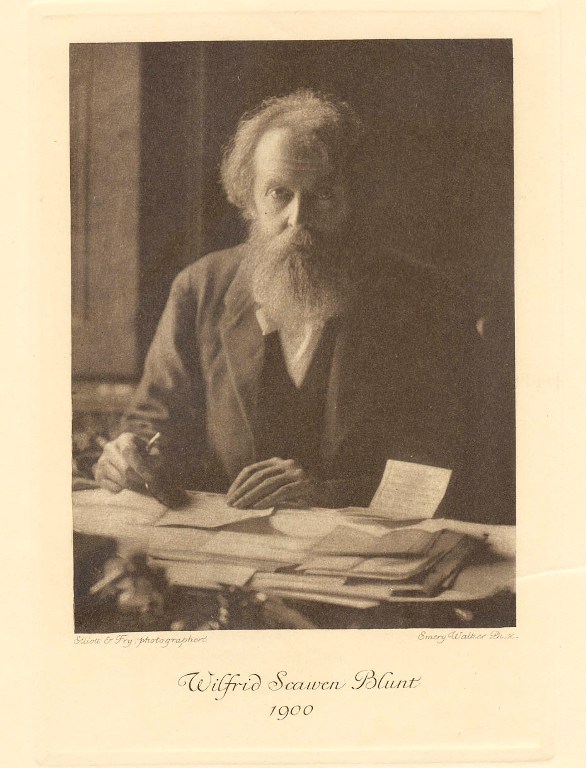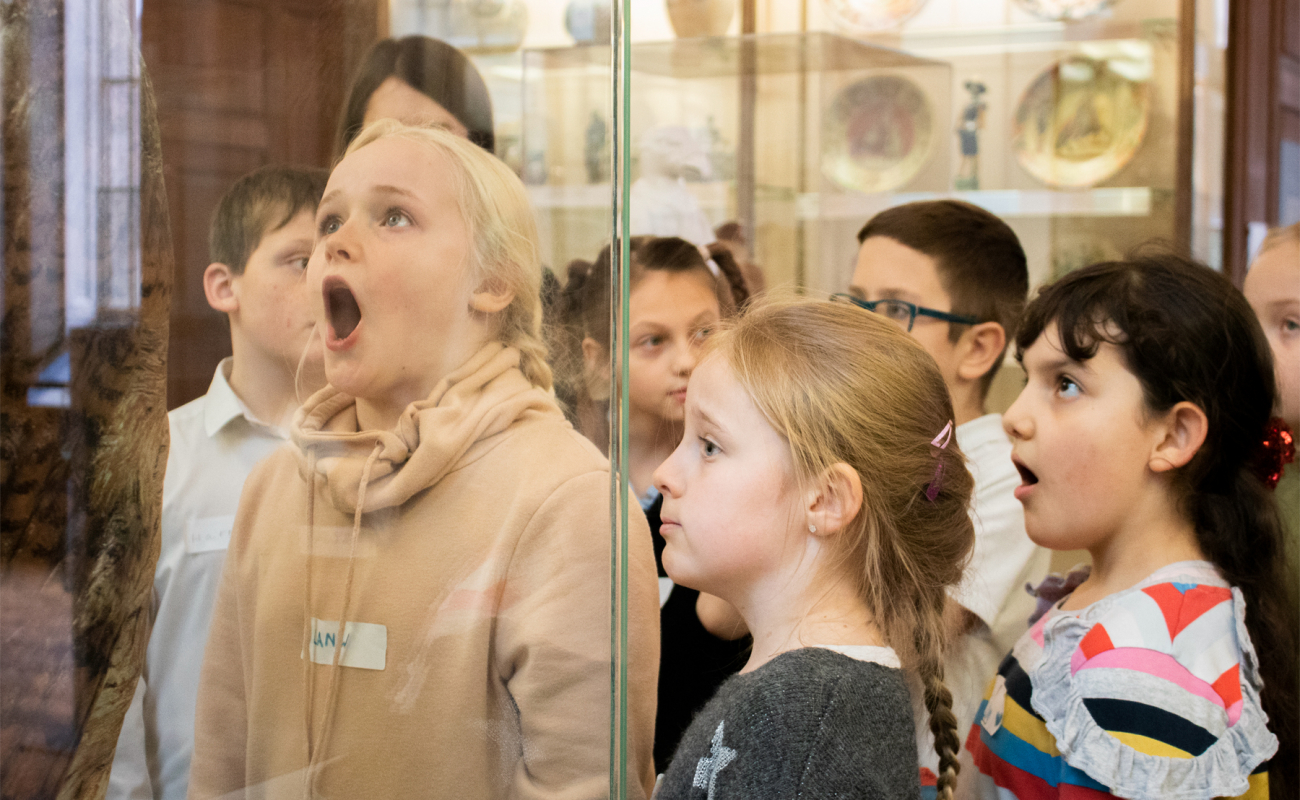
The Wilfrid Blunt Papers bequeathed by him in 1922
A member of the establishment, a former diplomat and a wealthy landowner, Wilfrid Blunt was also a famous horse-breeder and a talented poet. He was married to Byron’s granddaughter, Lady Anne, but counted some of the most beautiful women in contemporary society among his lovers, including William Morris’s wife, Jane. A day after Morris’s death Blunt summed up his complex opinion of him: ‘He is the most wonderful man I have known, unique in this that he had no thought for anything or person, including himself, but only for the work he had in hand, and those who could help him with it… I have seen him tender to his daughter Jenny and nice with her and with his wife, but I doubt whether he thought of them much when he did not see them, and his life was not arranged with reference to them… The truth is he would not give an hour of his time to anyone. He held it to be too valuable.’
Later Blunt admitted that his judgement was too harsh. When Cockerell visited him in September 1897, Blunt described Morris as ‘the greatest man he ever met.’ He employed Cockerell as his secretary, persuaded him to become his executor, and introduced him to major literary figures and members of the aristocracy who would play a role in the shaping of the Fitzwilliam’s collections. As a guest at their mansions, Cockerell saw genuine examples of the aesthetic interiors that would inspire the ‘country house’ style of his Museum.
Blunt is best remembered as the sworn anti-imperialist who became an outspoken advocate for Irish independence and a passionate supporter of the revolution in Egypt.
Blunt and Lady Anne, both self-taught Arabists, nurtured Cockerell’s interest in the history, literature and arts of the East. They offered him a first-hand experience of the Orient. During his visits to their house near Cairo he explored the region’s rich culture, travelling to Karnak, Thebes, Memphis, Beirut, Baalbeck, and Damascus, camping with Bedouins in the desert, and surviving a shipwreck on the way to Mount Sinai in 1900. Cockerell swore to keep his beard for the rest of his life. He kept his Arab robes too and wore them at a Fancy Dress Ball at the Cambridge Guildhall in 1919.




